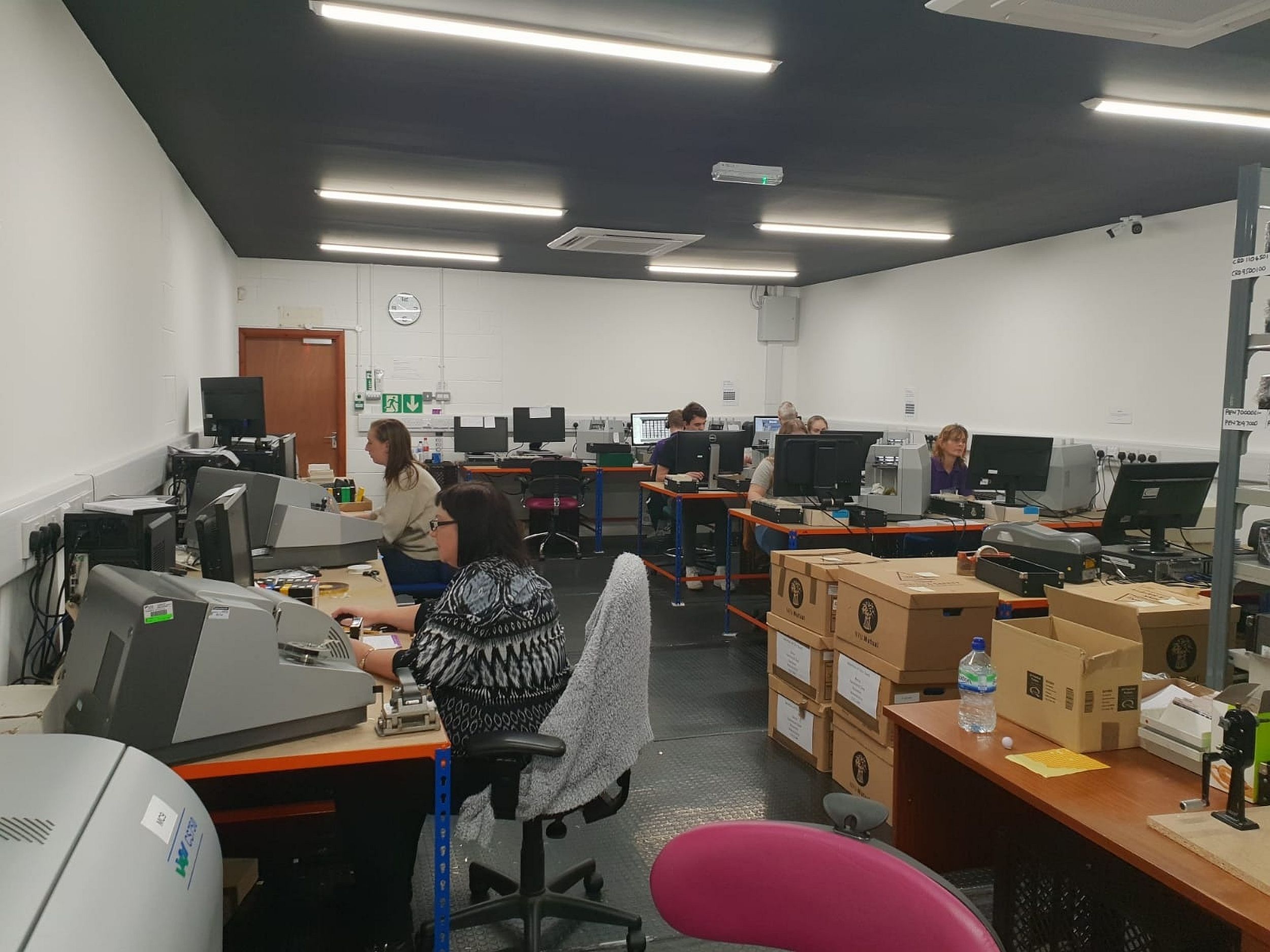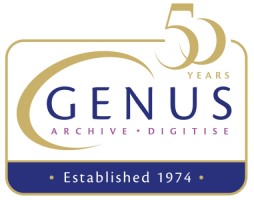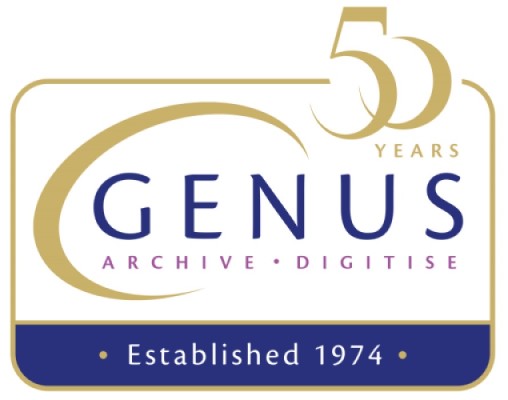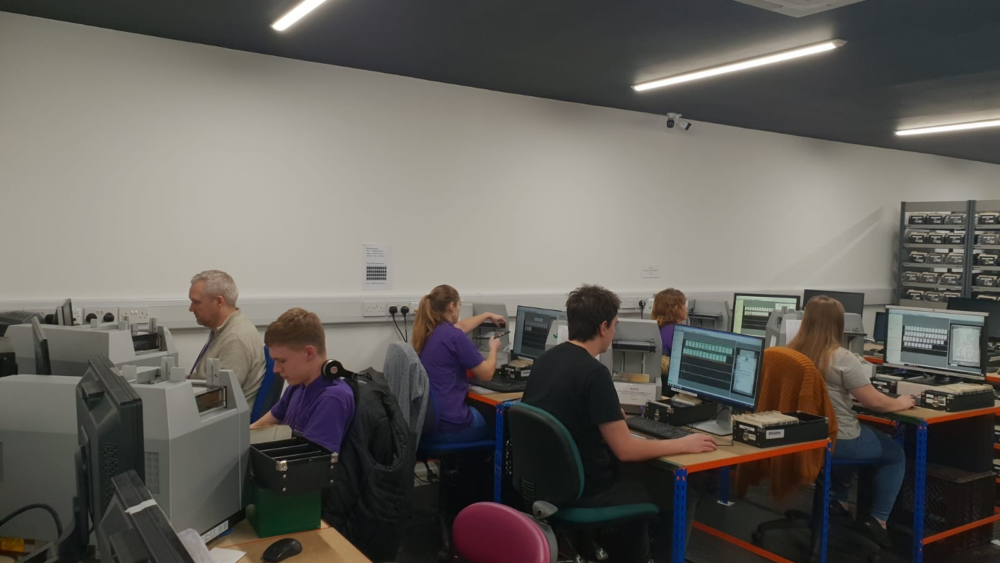Many employees are now working from home during these difficult times. It has been relatively easy for organisations to set up emails, business systems and video conferencing etc. to enable this home working to happen. Once this current situation is over, we fully expect the remote work force to be significantly larger than it was before the outbreak. The technology has always been there but now many organisations are actively adopting that technology and changing their business working practices for good. As a result, since the beginning of the crisis, Genus has seen a significant increase in enquiries about digitising hard copy documents and archives – from people now working from home, talking to our staff who are also working from home. We are finalising the details on a number of projects that we hope to start once this crisis is hopefully over.
However, one of the most interesting and popular enquires has been how to convert older collections of Microfilm and Microfiche to digital. Usually enquiries from Microfilm and Microfiche are always dealt with by a special internal department with staff specially trained to retrieve those files and distribute them. With people working from home these departments have not been able to operate as efficiently or at all. A great deal of key company information is held within these Microforms such as pension records, credit card applications, bank statements, medical trials, police forensic reports, personnel files, engineering drawings, historic ledgers, newspapers, aircraft manuals, flight logs, insurance policies, mortgage policies and nuclear decommissioning records. Even atmospheric, borehole and seismic logs are kept on microfilm along with many other confidential, historic and mission critical files.
With the move to home working and the ability to free up compartmentalised data to all workers on a strict permissions levels’ basis, Microfilm scanning has seen a surge in interest.
Over the past 12 months Genus has digitised over 1 million microfiche and many tens of thousands of films and aperture cards in our secure, dedicated microfilm digitisation studio. This studio is ISO 27001 Information Security audited and certified. Recent clients include high street banks, pension providers, local authorities, police constabularies, central government, the military and more.

Our microfilm digitisation studio has been designed for maximum security with the network and server infrastructure having restricted connectivity to the internet. We are regularly audited and passed by organisations for whom we process financial and highly confidential data.
If you are now considering the long-term unlocking of all that key data on Microfilm, then get in touch . We can offer a scanning service, or we can supply or hire the relevant production equipment.
More importantly, we have the software tools and mass indexing capabilities to properly extract your key data from the Microfilms and present it to you in a way that is useful and intuitive, rather than just a long list of data.
For a high street bank not only did we scan their microfiche and roll film but we also extracted the data from those media and returned it securely to them in a format they could import into their mainframe banking systems. This in turn enabled them to provide enquiry facilities for their customer facing teams. The images on the Microfilm for this project related to credit card applications and statements. By producing high quality and high accuracy images we were able to extract the 16-digit credit card number information. The Credit card number was read multiple times and validated against a Luhn 10 algorithm. When the algorithm was passed the data was output to a database, the image location on the fiche was applied providing our client with all the data they required plus the ability to call up the original image for referral.
For a Central Government agency, we were able to replace over 60 microfilm reader printers with a virtual digital microfilm reading system. Users looked at the microfilms in a familiar way to normal by scrolling through the films and pulled out the files they were looking for. This meant that their internal processes did not have to change. However, instead of pulling a roll of film from a cabinet, loading it into a reader printer, manually scrolling through and then replacing the film in the cabinet, the digital version of the film was made available to them at the click of a button. By accessing the microfilms this way the need to index every image was avoided, saving literally millions of pounds in indexing fees. Their 92,000 rolls of film held approximately 230 million images. At an average of 30 keystrokes per image our Imagehost solution avoided the necessity to pay for 6900 million keystrokes!
These are just some of the ways we can work with our customers to help them access their data better. With teams increasingly operating from remote locations it is time to unlock all of your analogue information so that you can access it instantly, securely and exactly where it is needed.
Genus – Scanning microfilm and microfiche – Intelligently.
*Photos taken before social distancing measures were applied to our workstations.




Comments are closed.